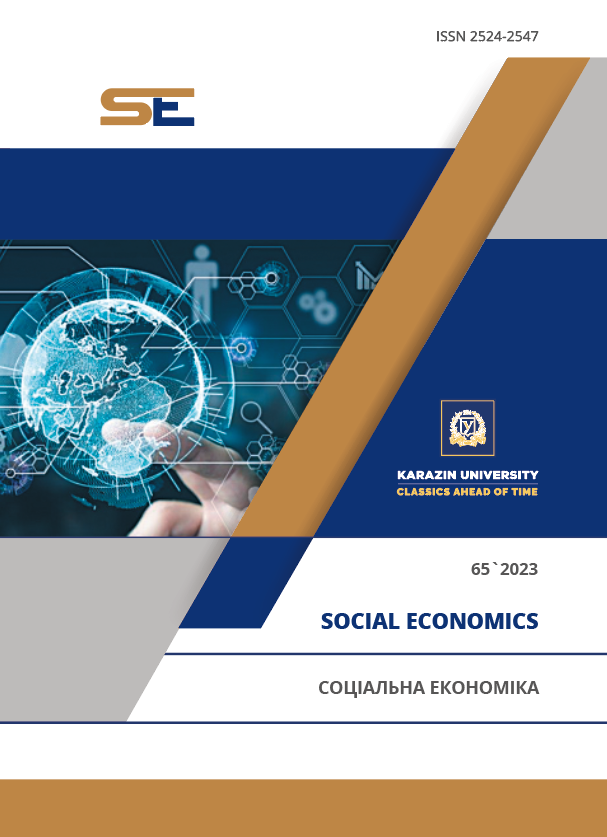SCIENCE-POLICY INTERFACE IN REGIONAL ENVIRONMENTAL MANAGEMENT: CASE OF HELCOM IN THE BALTIC CONTEXT
Abstract
The regional environmental cooperation in the Baltic Sea is the leading and “forerunner” model for managing environmental challenges at the regional level. The Baltic case is very often emphasized from the perspective of the successful implementation of non-binding recommendations toward marine environment management and the political will of contracting countries toward regional environmental cooperation. Despite four decades efforts, the Baltic region is a peculiar and unique case where long-term human-induced pressures and its fragile ecosystem cause even more challenges for regional states. In this study, we investigated the Baltic case from the perspective of the science-policy interface and used data from HELCOM (Helsinki Commission) Stakeholders Conferences organized from 2006 to 2022. The science-policy is regarded as the key processes in environmental protection and management. We conducted the qualitative research based on the document review tracing down interactions and activities of major stakeholders. We found that the Baltic case has led a long-term traditional science-policy processes where there has been a strong presence of scientific community aiming at providing the best available scientific knowledge for marine environment protection and management, and developing the database for decision-making. The Baltic regional cooperation has recently progressed towards involving citizen science, deliberation, and participatory approaches. The stakeholders agreed that to implement the ambitious BSAP into practice and concrete actions, the further development of civil councils, public participation, and multi-sectoral involvement is crucial for robust knowledge production in regional environmental management. From the institutional perspective, the working groups within the HELCOM can facilitate the mediation of scientific communities and societal actors. These groups can serve as boundary organizations in the science-policy interface.
Downloads
References
HELCOM. (2017). First Version of the ‘State of the Baltic Sea’ Report – June 2017.
HELCOM. (2018). Implementation of the Baltic Sea Action Plan, HELCOM Activities Report 2017.
Maggio, A. R. (2019). Regional cooperation for protection of the marine environment in Southeast Asia: current trends in the South China Sea. Asia Pacific Journal of Environmental Law, 22(1), 160-170. doi: https://doi.org/10.4337/apjel.2019.01.08
Saunders, F. P., Gilek, M., & Linke, S. (2017). Knowledge for environmental governance: Probing science-policy theory in the cases of eutrophication and fisheries in the baltic sea. Journal of Environmental Policy & Planning, 19(6), 769-782. doi: https://doi.org/10.1080/1523908X.2017.1286575
Van den Hove, S., (2007). A rationale for science-policy interface. Futures, 39(7), 807-826. doi: https://doi.org/10.1016/j.futures.2006.12.004
Forsyth, T. (2004). Critical political ecology: the politics of environmental science. Routledge.
Spruijt, P., Knol, A. B., Vasileiadou, E., Devilee, J., Lebret, E., & Petersen, A. C. (2014). Roles of scientists as policy advisers on complex issues: a literature review. Environmental Science and Policy, 40, 16-25. doi: https://doi.org/10.1016/j.envsci.2014.03.002
Cross, M. K. D. (2013). Rethinking epistemic communities twenty years later. Review of International Studies, 39(1), 1-24.
Mukherjee, I., & Howlett, M. P. (2015). Who is a stream? Epistemic communities, instrument constituencies and advocacy coalitions in multiple streams subsystems. Epistemic Communities, Instrument Constituencies and Advocacy Coalitions in Multiple Streams Subsystems (April 10, 2015). Lee Kuan Yew School of Public Policy Research Paper, 15-18. doi: http://dx.doi.org/10.2139/ssrn.2593626
Cross, M. K. D. (2015). The limits of epistemic communities: EU security agencies. Politics and Governance, 3(1), 90-100. doi: https://doi.org/10.17645/pag.v3i1.78
Backer, H., Leppänen, J. M., Brusendorff, A. C., Forsius, K., Stankiewicz, M., Mehtonen, J., ... & Haaranen, T. (2010). HELCOM Baltic Sea Action Plan–A regional programme of measures for the marine environment based on the Ecosystem Approach. Marine pollution bulletin, 60(5), 642-649. doi: https://doi.org/10.1016/j.marpolbul.2009.11.016
Johansson, S., & Wulff, F. (2007). The MARE Research Program 1999-2006: Reflections on Program Management. Ambio, 36(2/3), 119-122.
Linke, S., Gilek, M., Karlsson, M., & Udovyk, O. (2014). Unravelling science-policy interactions in environmental risk governance of the Baltic Sea: comparing fisheries and eutrophication. Journal of Risk Research, 17(4), 505-523. doi: https://doi.org/10.1080/13669877.2013.794154
Tynkkynen, N. (2013). The challenge of environmental governance in the network society: The case of the baltic sea. Environmental Policy and Governance, 23(6), 395-406. doi: https://doi.org/10.1002/eet.1621
Burton, E., Wang, W., & White, R. (2019). An Introduction to the Science-Policy Interface Concept: What, Why, and How. Retrieved from https://eiui.ca/an-introduction-to-the-science-policy-interface-concept-what-why-and-how/.
HELCOM HSC. (2020). Outcome of the HELCOM Stakeholder Conference 2020. Retrieved from https://helcom.fi/wp-content/uploads/2020/03/Outcome-of-the-2020-HELCOM-Stakeholder-Conference.pdf.
VanDeveer, S. D. (2011). Networked baltic environmental cooperation. Journal of Baltic Studies, 42(1), 37-55. doi: https://doi.org/10.1080/01629778.2011.538516
HELCOM HSC. (2007). Outcome of the 2nd HELCOM stakeholder conference. Retrieved from https://helcom.fi/wp-content/uploads/2019/08/BSAP-CONF-2-2007_Outcome.pdf.
HELCOM HSC. (2021). HELCOM Stakeholder Conference 2021 (HSC2021) “Practically Implementing Ecosystem-Based Management”. Retrieved from https://helcom.fi/wp-content/uploads/2021/03/HSC2021-outcome.pdf.




